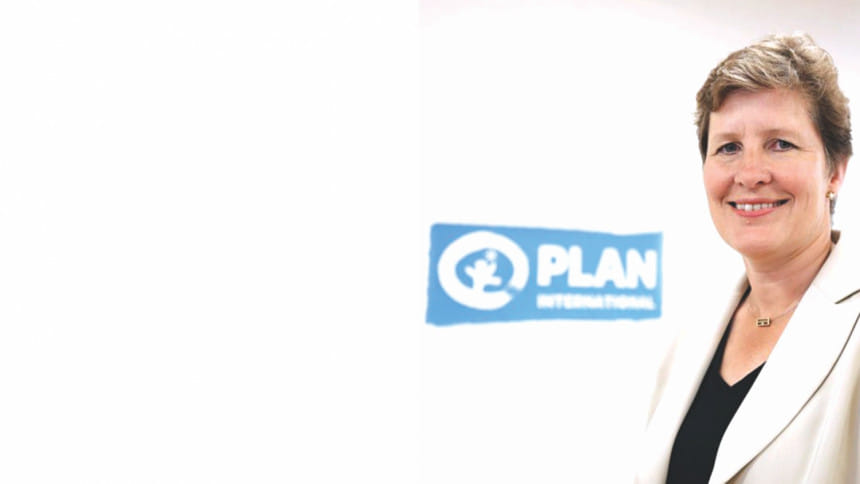"Talk to the girls, listen to their needs and keep them in school"

Recently leading international rights, development, civil society and private sector organisations launched a new data and research partnership to monitor and drive progress on gender targets in the Sustainable Development Goals (SDG) at Women Deliver conference.
Plan International is an independent child rights organisation committed to enabling vulnerable and marginalised children to be free of poverty. The organisation's Chief Executive Anne-Birgitte Albrectsen (mentioned as "AB" in the following part of this article) shared her views on the development of women and girls during the conference.
She talked about the vision of her organisation in line with the new targets of SDG. She said, "There are two big shifts for us. One relates to our own programming and campaigning, which now squally force the girl child at the center of everything we do. The other piece, we have committed to join a major partnership of independent organisations to track the promises of the implementation of promises that governments have made under the SDGs for women and girls."
She informed, "We launched this week an initiative that we are calling the initiative to drive and track the implementation of the SDGs for girls and women – known as the SDG tracker for girls and women, which is a data, research and advocacy partnership together with the One campaign, the International Women's Health Coalition, Women Deliver and KPMG – where we will collect data, assess the quality of data, close data gaps, so we can constantly follow whether the needle is moving in a sense in the lives of women and girls as has been promised under the SDGs."
Talking about the major policy barriers that is faced in most of the countries, "AB" explained, "I think it is probably more an issue of addressing policies that very rarely specifically address the needs of adolescent girls – the governments often address children, they address education, but adolescent girls have very special needs and often there are big policy gaps.
In countries like Bangladesh where the environment is not suitable to seek some available services for the adolescent girls due to the cultural issues, "AB" recommended, "Talk to the girls, listen to what their needs are, listen to what they see as their main barriers and keep them in school. And it can be anything, can be menstrual hygiene, it can be a safe road to travel when they go to school, but it can also be about the complete lack of understanding of issues relating to sexual health, or simply having access to knowledge and understanding of how they best protect themselves and uphold their integrity."
"AB" further highlighted that, "I think for most countries today with tremendous progress, there are still many millions of people lagging behind. So the focus on inclusion, the focus on ultra-poor, the focus on ensuring there are groups have voice and say in the priorities set by the governments over the next fifteen years is probably the biggest thing that we all have to do together."
Finally "AB" urged the governments to pay attention to the issue of fear and violence in women's and girls' lives - the sense of fear of violence and sexual abuse, fear of not being listened to, fear of not fulfilling the potential – and governments have to focus on. She said, "I know it can feel intangible, but the governments have to focus on this issue and make sure that their countries are safe from all of that including the girl child."
E-mail: [email protected]

 For all latest news, follow The Daily Star's Google News channel.
For all latest news, follow The Daily Star's Google News channel. 



Comments